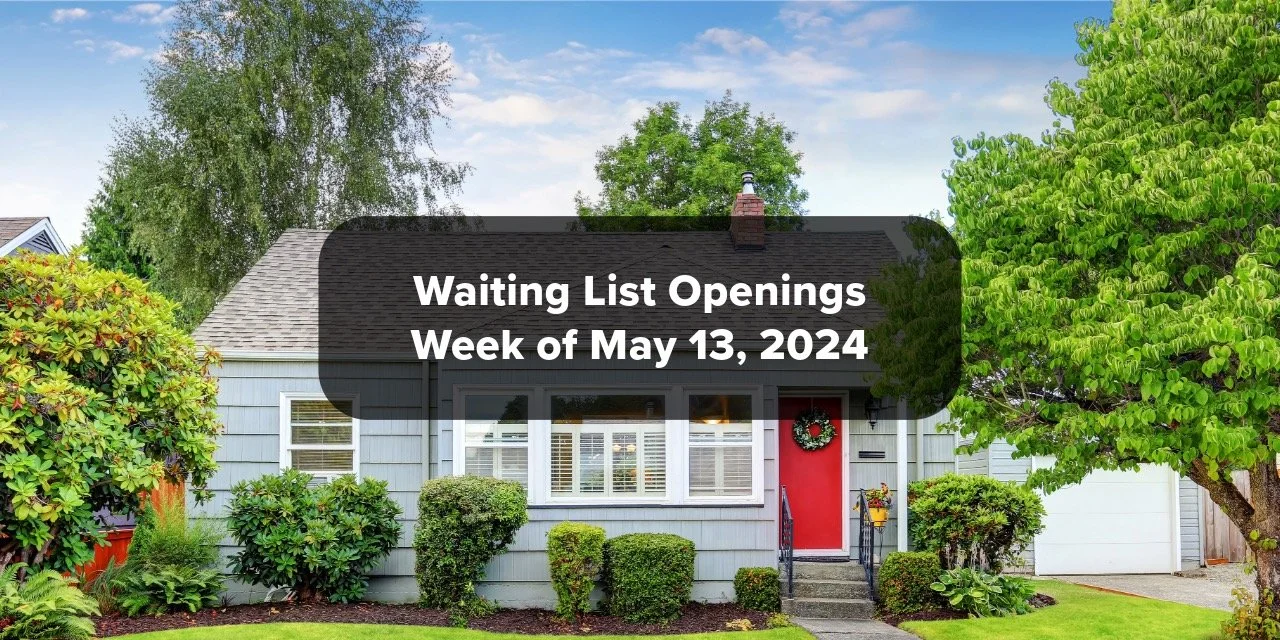Georgia Section 8 Housing
/Introduction
Georgia Section 8 Housing, also known as the Housing Choice Voucher Program, is a federal assistance program that helps low-income individuals and families afford safe and decent housing. In the state of Georgia, the program is administered by the Georgia Department of Community Affairs (DCA). Section 8 housing vouchers are designed to provide eligible households with a portion of their monthly rent payment, with the remainder being paid by the tenant.
It is important to understand the application process and eligibility requirements for Section 8 housing in Georgia to ensure that you have the best chance of obtaining this type of affordable housing assistance. In this article, we will provide an overview of Section 8 housing in Georgia, including eligibility requirements, income limits, fair market rents, and how to apply. We will also discuss other low-income housing options and resources available in Georgia.
Who Qualifies for Section 8 in Georgia?
To qualify for Section 8 housing in Georgia, applicants must meet certain eligibility requirements. These requirements include income limits, household size, and other factors that may affect eligibility.
Income Limits: In Georgia, Section 8 housing is designed to assist households with very low incomes. The income limits vary based on the county and the number of people in the household. For example, in Fulton County, the income limit for a family of four is $40,650, while in Chatham County, the income limit for the same family size is $33,250. The income limits are updated annually and can be found on the DCA's website.
Household Size: The size of the household also affects eligibility for Section 8 housing. The DCA considers a household to be a family or an individual who lives alone, as well as their dependents. The number of people in the household is used to determine the amount of rental assistance the household is eligible to receive.
Special Circumstances: In addition to income and household size, special circumstances may also affect eligibility for Section 8 housing in Georgia. For example, individuals with disabilities may be eligible for additional assistance through the Section 8 program. Applicants who have previously been incarcerated or who have a criminal history may also face restrictions on their eligibility for Section 8 housing.
Overall, to qualify for Section 8 housing in Georgia, applicants must meet the income and household size requirements, as well as any additional eligibility criteria. It is important to review the specific requirements for your county and to contact your local housing authority with any questions.
What is the Most Section 8 Will Pay in Georgia?
The amount of rental assistance provided through the Section 8 housing program in Georgia is determined by several factors, including the family's income and the fair market rent for the area.
Rental Subsidies: The rental subsidy is the portion of the rent that is paid by the Section 8 program on behalf of the tenant. In Georgia, the rental subsidy is generally calculated as the difference between 30% of the household's adjusted gross income and the applicable payment standard. The payment standard is the maximum amount of rental assistance that the program will provide for a particular unit size in a given area.
Maximum Rental Assistance: The maximum rental assistance available through the Section 8 program in Georgia varies by county and is based on the fair market rent for the area. The fair market rent is determined annually by the U.S. Department of Housing and Urban Development (HUD) and is based on the average rent for a unit of a given size in the local market. In some cases, the maximum rental assistance may be higher than the payment standard, but the tenant is responsible for paying the difference.
Calculating Your Rental Subsidy: To calculate your estimated rental subsidy amount for Section 8 housing in Georgia, you can use the DCA's online rental assistance estimator. This tool takes into account your household size, income, and other factors to estimate the amount of rental assistance you may be eligible for through the Section 8 program.
Overall, the amount of rental assistance provided through Section 8 in Georgia is based on several factors, including the family's income and the fair market rent for the area. It is important to understand how rental subsidies are determined and to calculate your estimated rental subsidy amount to determine if Section 8 housing is a viable option for you.
Income Limits for Section 8 Housing in Georgia
To be eligible for Section 8 housing in Georgia, applicants must meet certain income limits. The income limits are determined by the DCA and are based on the county and the number of people in the household.
Income Limit Calculation: The DCA calculates the income limits for Section 8 housing in Georgia using the area median income (AMI) for the county. The AMI is the midpoint of the income distribution in a given area, and it is based on the number of people in the household. The income limits are calculated as a percentage of the AMI, with lower percentages applying to households with lower incomes.
Income Limit Updates: The income limits for Section 8 housing in Georgia are updated annually to reflect changes in the AMI. It is important to review the current income limits for your county to determine if you meet the eligibility requirements.
Calculating Your Household Income: To determine if your household meets the income requirements for Section 8 housing in Georgia, you will need to calculate your household income. This includes all sources of income for all members of the household, including wages, tips, social security benefits, child support, and other sources. The DCA provides guidance on how to calculate your household income for Section 8 eligibility on their website.
Overall, understanding the income limits for Section 8 housing in Georgia is an important part of determining your eligibility for the program. By reviewing the income limits for your county and calculating your household income, you can determine if you meet the income requirements for Section 8 housing assistance.
The following table shows current income limits in Georgia based on household size.
Fair Market Rents for Section 8 Housing in Georgia
Fair market rents (FMRs) are the maximum rental rates that the Section 8 housing program will pay for a particular unit size in a given area. FMRs are determined annually by the U.S. Department of Housing and Urban Development (HUD) and are based on the average rent for a unit of a given size in the local market.
Determining Fair Market Rents in Georgia: In Georgia, fair market rents are determined by HUD based on data collected from local housing surveys. The FMRs are calculated at the county level for different unit sizes, and they vary based on the housing market in each county.
Effect of Fair Market Rents on Section 8 Assistance: Fair market rents play an important role in determining the amount of rental assistance that a Section 8 participant can receive. If the rent for a particular unit exceeds the FMR for that area, the tenant may be required to pay the difference between the rent and the FMR out of their own pocket.
Overall, understanding fair market rents is an important part of the Section 8 housing program in Georgia. By knowing how FMRs are determined and how they affect rental assistance, you can make informed decisions about the housing options available to you.
The following table shows current Fair Marketing Rents in Georgia.
How to Apply for Section 8 Housing in Georgia
To apply for Section 8 housing in Georgia, you must submit an application to your local housing authority. Here's an overview of the application process and what you need to know:
Application Methods: You can apply for Section 8 housing in Georgia online or in person at your local housing authority. To apply online, you will need to visit the DCA's website and follow the instructions for submitting an application. If you prefer to apply in person, you can contact your local housing authority to schedule an appointment.
Required Documentation: When you apply for Section 8 housing in Georgia, you will need to provide documentation to support your application. This may include proof of income, identification, and other relevant documents. The specific requirements may vary by housing authority, so be sure to check with your local office to determine what documentation is required.
Application Deadlines: There is no deadline to apply for Section 8 housing in Georgia, but the waiting list for rental assistance is often long. You should apply as soon as possible to increase your chances of receiving assistance.
Waiting List Process: Once you submit your application, you will be placed on a waiting list for rental assistance. The waiting list can take several months or even years to move, depending on the demand for rental assistance in your area. When your name comes up on the waiting list, you will be contacted by your local housing authority to begin the process of finding a rental unit and receiving rental assistance.
Overall, applying for Section 8 housing in Georgia can be a lengthy and complex process. By understanding the application methods, required documentation, and waiting list process, you can better prepare yourself for the application process and increase your chances of receiving rental assistance.
The following table shows Housing Authorities in Georgia and their current waiting list status.
| Housing Authority | Waiting List Status |
|---|---|
| Atlanta Housing Authority | Open |
| Housing Authority of Savannah | Closed |
| Housing Authority of Columbus | Open |
| Housing Authority of DeKalb County | Closed |
| Augusta Housing Authority | Open |
| Albany Housing Authority | Open |
| Athens Housing Authority | Closed |
| Brunswick Housing Authority | Open |
| Douglasville Housing Authority | Open |
| Gainesville Housing Authority | Closed |
| Macon Housing Authority | Open |
| Rome Housing Authority | Closed |
| Valdosta Housing Authority | Open |
| Warner Robins Housing Authority | Closed |
Housing Authorities in Georgia
Housing authorities play a key role in administering the Section 8 housing program in Georgia. Here's an overview of their role and how to find your local housing authority:
Role of Housing Authorities: Housing authorities in Georgia are responsible for administering the Section 8 housing program at the local level. This includes accepting and processing applications, verifying eligibility, and managing the waiting list for rental assistance. Housing authorities also work with landlords to ensure that rental units meet Section 8 housing quality standards.
Different Housing Authorities in Georgia: There are multiple housing authorities in Georgia that administer the Section 8 housing program. The largest of these is the Atlanta Housing Authority, which serves the Atlanta metropolitan area. Other housing authorities in Georgia include the Housing Authority of Savannah, the Housing Authority of Columbus, and the Housing Authority of DeKalb County, among others. Each housing authority serves a specific geographic area, so it's important to contact your local housing authority to determine which one serves your area.
Contacting Your Local Housing Authority: To contact your local housing authority in Georgia, you can use the DCA's housing authority search tool. This tool allows you to search for housing authorities by county or city and provides contact information for each housing authority.
Overall, understanding the role of housing authorities in administering the Section 8 housing program in Georgia is an important part of the application process. By finding your local housing authority and contacting them directly, you can obtain the information and assistance you need to apply for Section 8 housing in your area.
The following table shows the most prominent Housing Authorities in Georgia along with their contact information.
| Housing Authority | Contact Information | Website |
|---|---|---|
| Atlanta Housing Authority | 230 John Wesley Dobbs Ave NE, Atlanta, GA 30303 404-892-4700 |
Visit Website |
| Housing Authority of Savannah | 200 E. Bryan St., Savannah, GA 31401 912-235-5844 |
Visit Website |
| Housing Authority of Columbus | 201 7th St, Columbus, GA 31901 706-571-2800 |
Visit Website |
| Housing Authority of DeKalb County | 750 Commerce Dr, Decatur, GA 30030 404-270-2500 |
Visit Website |
| Augusta Housing Authority | 1435 Walton Way, Augusta, GA 30901 706-724-5466 |
Visit Website |
Other Low Income Housing Options in Georgia
While Section 8 housing in Georgia often has a long waiting list, there are other low-income housing options available that do not have a waiting list. Here's an overview of some of these options and how to apply:
Public Housing: Public housing is a type of affordable housing that is owned and managed by local housing authorities. Unlike Section 8 housing, public housing units are owned by the housing authority and rented directly to eligible low-income households. Public housing units are often available with no waiting list, although availability varies by location.
Low-Income Housing Tax Credit (LIHTC) Properties: LIHTC properties are privately owned rental units that are subsidized by the government. These properties offer affordable rents to low-income households and are often available with no waiting list. To be eligible for LIHTC properties, applicants must meet income requirements and other eligibility criteria set by the property owner.
Applying for Low-Income Housing: To apply for public housing or LIHTC properties in Georgia, you will need to contact the property owner or housing authority directly. Each property or authority may have different eligibility requirements and application processes, so be sure to do your research and contact the appropriate organizations for more information.
Overall, if you are in need of affordable housing in Georgia but are unable to access Section 8 housing due to long waiting lists, there are other low-income housing options available. By researching public housing and LIHTC properties in your area and understanding the application process, you may be able to secure affordable housing without a long wait.
Conclusion
In conclusion, understanding the application process and eligibility requirements for Section 8 housing in Georgia is crucial for low-income households seeking affordable housing. Here are some key takeaways:
To be eligible for Section 8 housing in Georgia, applicants must meet certain income limits and other eligibility criteria.
The amount of rental assistance available through Section 8 is based on fair market rents and other factors.
Applying for Section 8 housing in Georgia can be a lengthy process, and applicants should be prepared to provide documentation and meet application deadlines.
In addition to Section 8 housing, there are other low-income housing options available in Georgia, including public housing and LIHTC properties.
HUD offers a variety of housing programs in Georgia, and applicants should contact their local HUD office or a HUD-approved housing counseling agency to learn more.
By understanding these key points and resources, low-income households in Georgia can better navigate the housing application process and access safe and affordable housing. For more information on Section 8 housing, low-income housing options, and HUD programs in Georgia, visit the Georgia Department of Community Affairs website or contact your local housing authority or HUD office.










